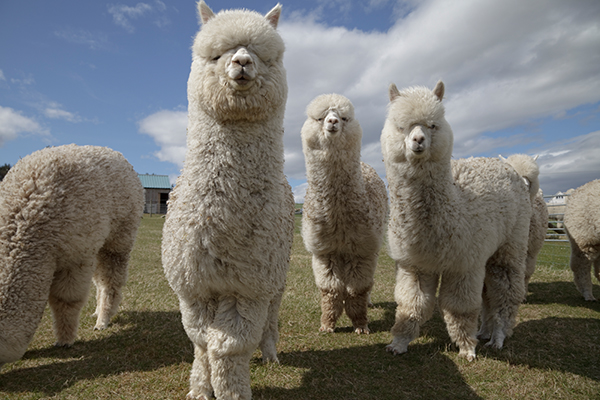How alpacas could be the key to finding a COVID-19 cure

Researchers have injected a group of alpacas in East Gippsland with tiny fragments of COVID-19 in a project that could lead to a treatment for the deadly virus.
Alpacas, curiously, produce two types of antibodies, one similar to the one produced by humans and another smaller one which is known as a nanobody.
Researchers from the Walter and Eliza Hall Institute have immunised several Bairnsdale alpacas with COVID-19 nanobodies and, together with scientists from the Australian Synchotron, are studying the molecular structure of those nanobodies and attempting to extract them.
Senior Principal Research Scientist at the Australian Synchotron, Professor Michael James, said no live virus has been injected into the alpacas.
“This is the protein that we’ve all seen on the pictures of the virus, the sort of spiky bits that stick out from the surface,” he explained to Ross and Russel.
“The spike is used to connect with our cells and once the virus is able to connect to our cells it’s able to get in and start replicating.
“If you can chop up key bits of the antibody that attacks a virus, then you can use those fragments … You can use nanobodies to bind to the virus and then you can stop the virus from entering our cell.”
Professor James said he thinks it’s more likely than not that a COVID-19 treatment will be developed by the end of 2021.
Press PLAY below for more.



